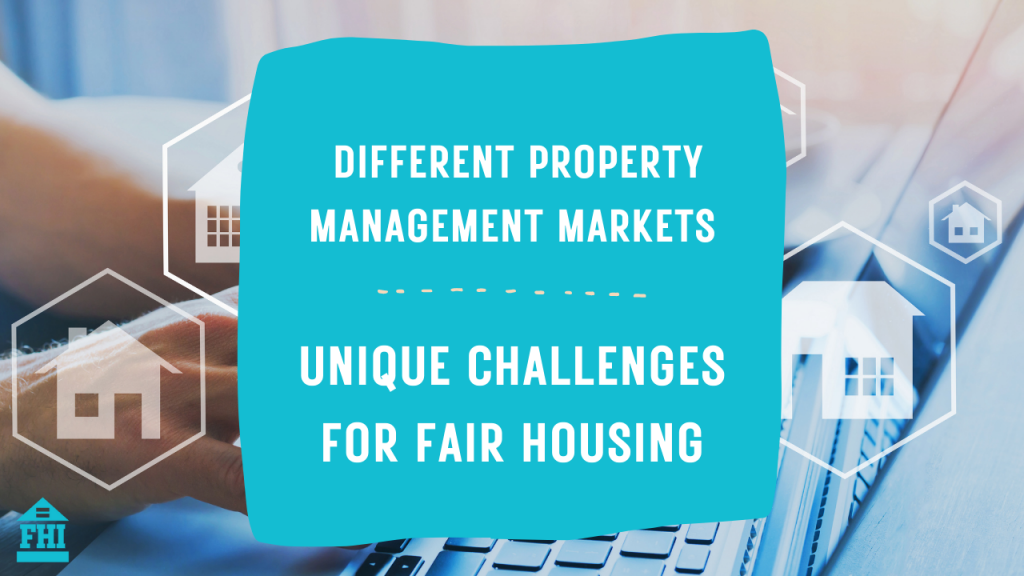With the many different property management markets, it is vital to understand how The Fair Housing Act and other state and federal laws apply. Targeted training is needed to tackle the unique fair housing challenges each will encounter.

Estimated reading time: 4 minutes
Table of contents
Property management has one of the highest employee turnover rates. People in the industry tend to move around throughout their careers and may not always find themselves in the same type of housing sector. As a result, thorough knowledge coupled with ongoing training is required if a company wants to ensure that they and their employees are fair housing compliant. In this article, we will briefly review several different types of housing and discuss how each presents different challenges when it comes to fair housing compliance.
Private or Market Rate Housing
Private or market-rate housing makes up the majority of apartments out there. The Fair Housing Act directly applies to this market, so the training should also be targeted.
Subsidized Market
Subsidized market housing is when the government provides funds to reduce the amount of rent a tenant pays. Because the federal government is involved, there are additional federal requirements on top of the federal and state fair housing requirements. For example, a private landlord is not required to cover the cost of a reasonable accommodation modification, but landlords in subsidized market housing are.
Low-Income Tax Credit Housing
Low-income tax credit housing mimics the fair housing compliance requirements of private market housing unless a state finance housing agency has added additional requirements, which many do. One example would be again how a landlord handles a reasonable accommodation.
In addition, if a fair housing claim is made against this type of housing provider, they may see a more severe outcome or result if the claim is upheld.
Senior Housing
Senior housing creates all kinds of very specific fair housing challenges. An example of this would be how a housing provider handles a resident that has become violent due to dementia. Considering this market’s unique challenges, we created a complete training module focusing on senior housing and how The Fair Housing Act applies.
Manufactured Homes
The manufactured home market is difficult because of the various ownership/rental relationships that exist. These can create confusion about how fair housing laws apply, leading some to believe that they do not apply to them when they actually do. As a result, this misunderstanding has resulted in numerous claims and violations.
Supportive Housing
Supportive housing was created to address the needs of people who require additional assistance and housing. A few examples of this would be people with disabilities or women escaping domestic violence. Each one has its own unique fair housing challenges that require specific training and understanding of how the laws apply.
Public Housing
Public housing not only has specific government requirements because it is federally subsidized, but it also has additional requirements created by HUD that do not exist for private landlords.
Student Housing
Student housing is a growing profitable industry that employs many people. Yet it again presents different hurdles from other housing types like dorm-style or roommate living situations. Many fair housing questions arise for property managers and owners as to what their fair housing responsibilities are because the laws apply differently. Again why we created a specific training module that zero’s in on this type of housing.
Different Property Management Markets – How To Tackle Their Unique Fair Housing Challenges
Throughout this article, we have shown the variety of housing markets and how each one can face very different fair housing challenges. Without adequate training, staff can quickly find themselves making mistakes that can lead to fair housing violations. Training needs to include a variety of techniques. Role-playing, scenarios, and regular practice session coupled with regular industry-specific courses will give staff the knowledge and skills they need to stay compliant. We are here to help you navigate the different types of training needed and share complimentary fair housing education on a regular basis. Be sure to sign up for our newsletter so you never miss out on an episode.
[fusebox_transcript]
You May Also Like:
